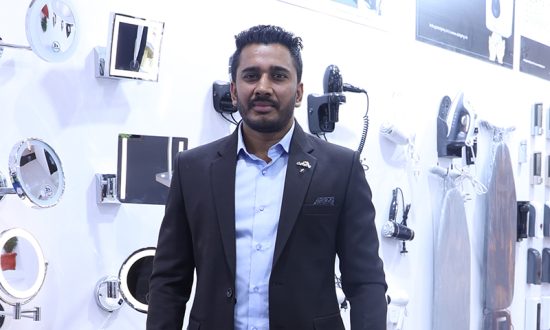A young and dynamic MBA graduate, Mr. Bhagirath Sorathiya has been inclined to finding innovative solutions to the problems of the people. He very well understands the significance of hygiene in people’s lives and the difficulties they face to maintain the same. In order to mitigate their problem, he founded Dolphy India in Surat, Gujarat in 2017.
Hospitality is a multifaceted industry that caters to the needs of multiple travellers. It has become a great source of revenue generation. But do you know that it hasn’t always been like this? The hospitality industry has emerged through the Tourism industry and widely revolves around it. As the tourism industry grew, the hospitality industry too evolved to become more convenient and advanced. In the olden days, there were no specific facilities meant for travellers. They were helped by the locals, who would provide them with extra spaces to rest during their journey. Thus arose the need for lodging services and shelters that would take care of the travellers. They would provide them with a cover to rest and food to eat. This is how the seeds of the hospitality industry were sown, and since then, its growth and evolution know no bounds.
- The 20th century marked the beginning of the modern era in the hospitality industry. The industry had started working on the architecture of their hotels. The environment became quite competitive.
- The concept of Motels also arose around the time and became popular as they were affordable and more convenient.
The 21st century was the onset of technological integration in the field of the hospitality industry. From only providing spaces to live, to making their stay convenient and luxurious, the hospitality industry has come a long way. It was possible only because of the massive advancement in technology.
- Different platforms that connected travellers to their destinations by providing online services for booking tickets or hotel rooms, or other services came to play.
- As the industry grew, relentless innovations and cutting-edge technology led to a more luxurious aspect of the industry. With AI and evolving engineering designs, the world saw the industry change for the elite. Sensor systems made way for sensor taps, automatic soap dispensers and facilities like washroom automation.
- Hotels and services started including amenities like soaps, towels, electric kettles, hair dryers etc., depending on their standards and costs. Bigger and costlier hotels that catered to the higher class started including Mini Bars in their services and were all the more modernized. As the world grew more inclusive and user-friendly, baby diaper changing stations became an important facility to be provided to the customers.
- Voice Search and voice control features are a growing technology trend within the hospitality sector as customers may use voice recognition tools to find restaurants, cafes, hotels, and more.
- Automation of the hospitality industry led to the use of robots for performing tedious tasks that were initially undertaken by humans. The use of robotics can be seen in cleaning purposes like vacuum cleaning floors or germ-killing.
- What can be more convenient than getting your queries addressed at any time of the day? Chatbots are growing in immense popularity as it provides immediate responses to customers irrespective of the time.
This time also saw a significant setback as the world was hit by the biggest pandemics of all time, the Covid-19 virus, which killed millions of people all across the globe. People were forced to stay indoors. Travelling became a thing of the past. The hospitality and the tourism industry were crushed and suffered losses globally. This changed the perspective of sanitation and hygiene. We saw a remarkable change in the hospitality industry post-pandemic. The recovery was slow, but technology made it easier to adapt to this new phase of the era, where Covid accessories became a prerequisite for all travellers.
- For the hotel and resort entrances, products like touchless thermometers were installed instead of manual temperature guns to ensure the safety of the travellers.
- Usage of touchless hand sanitizer dispensers at hotel receptions, guest rooms, and cafeteria to restrict the spread of COVID symptoms.
- Queue managers are used at hotel receptions and resort entrances to control the overcrowding at hotels and practice social distancing.
- Traditional dustbins were replaced by touchless and automatic items like trash bins which are more hygienic and premium.
- Huge demand for a clean and germ-free ambience led to products like auto shoe cover dispensers, sole sanitizing machines, automatic sanitisers and soap dispensers.
- The covid time saw a great number of deaths due to lack of oxygen and improper cardiovascular health. Air purifiers were installed to solve this problem that arose from pollution.
- Automatic urinal flushers, sanitary napkin disposals etc., became prominent parts of the new world.
- Customer safety is the utmost priority in the hospitality sector. Touchless Washroom products are used for the safety of guests at the hotel.
The expectations of customers from the industry have widely changed from merely being a passive service provider to holding active accountability for their health and lives. The lodging industry has changed in several aspects over the past decades. These changes have helped hoteliers to enhance their products to attract more guests and increase expansion opportunities. It is only fair to say that in the coming years the hospitality industry will see an upsurge in its revenues. The amalgamation of technology and innovation shall help provide top-notch services to the customers.


